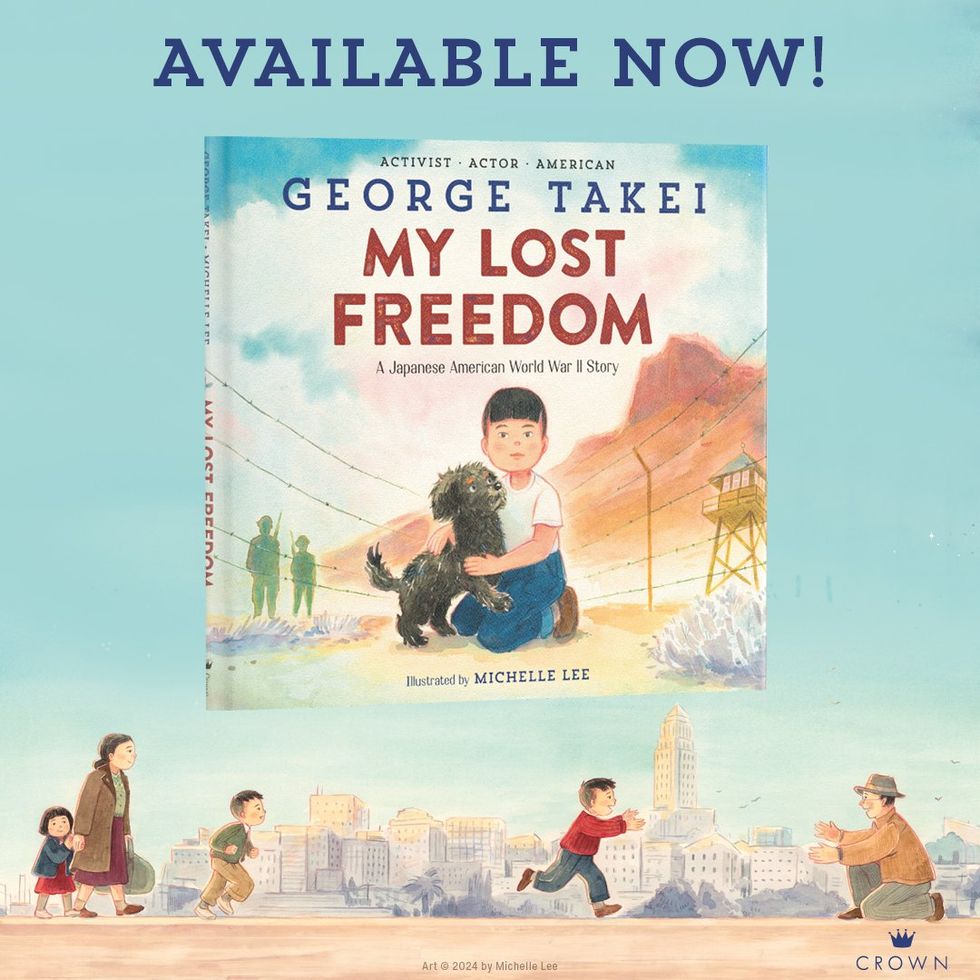Books
George Takei releases kids' book about his childhood in internment camp

Shutterstock; Penguin Random House
My Lost Freedom tells the story of a shameful chapter in American history.
April 17 2024 3:18 PM EST
trudestress
By continuing to use our site, you agree to our Privacy Policy and Terms of Use.

My Lost Freedom tells the story of a shameful chapter in American history.
Out actor and activist George Takei has released a children’s book about his experiences in an internment camp for Japanese Americans, to which he was sent with his family when he was just 4 years old.
In February 1942, two months after the Japanese attack on Pearl Harbor drew the United States into World War II, President Franklin D. Roosevelt declared anyone of Japanese descent an enemy of the U.S.
“George and his family were American in every way,” says publisher Penguin Random House’s description of the book, My Lost Freedom. “They had done nothing wrong. But because of their Japanese ancestry, they were removed from their home in California and forced into camps with thousands of other families who looked like theirs.”
The Takei family went to three different camps over the next three years. The book, illustrated with watercolors by Michelle Lee, is a portrait of young George’s resilience and his parents’ courage.

"I’m so excited to share that my new picture book from Random House Children's Books, MY LOST FREEDOM is officially here! It’s a true story about growing up in Japanese American incarceration camps during World War II. I looked back at my own memories to help children today understand what it feels like to be treated as an enemy by your own country. This is a story of my family’s courage and the importance of staying true to yourself in the face of injustice," he said on social media.
“This is an American story that Americans need to know about,” Takei, who is most famous for his portrayal of Sulu on the original Star Trek series, recently told The New York Times.
Conditions were brutal, but there were moments of relief. “At Rohwer [one of the camps], my father arranged to borrow a record player from the camp administration every couple of months, and after dinner, the tables were dragged away, the benches were put off to the side, and the teenagers got to have a dance,” he recalled. “My bedtime music was the music from the mess hall. I still get a lump in my throat when I hear big band music from the 1940s.”
After the family’s release from the camps, “the whole world opened up,” Takei added.
He has previously dealt with these experiences in his autobiography To the Stars, published in 1994; a graphic memoir, They Called Us Enemy, from 2019; and a musical theater production, Allegiance, which premiered in 2015.
Takei has come a long way since he and other Japanese Americans were declared enemies of the U.S., he reflected in the Times interview. “Brad and I are a gay couple, I was raised in American prison camps, and we went to a State Dinner, in the White House, as guests of President Clinton in 1999 to welcome Prime Minister Obuchi to Washington,” he noted. “And I got another invitation from President Obama to greet Prime Minister Abe and his wife in 2015. Obama put us up on the dais, I was seated next to the first lady of Japan, and Brad was seated next to Nancy Pelosi. How about that?”
Charlie Kirk DID say stoning gay people was the 'perfect law' — and these other heinous quotes